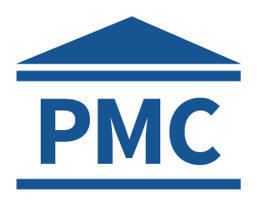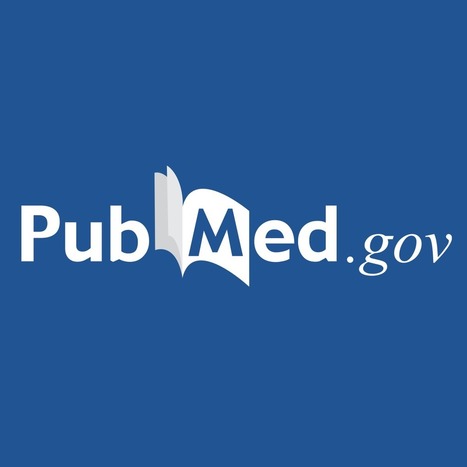 Your new post is loading...
 Your new post is loading...
The aim of this study was to evaluate the relationship between infection with SARS-CoV-2 and autoimmunity.Coronavirus disease 2019 (COVID-19) is an infectious disease caused by severe acute respiratory syndrome (SARS) associated coronavirus 2 (SARS-CoV-2).
Specific ACPAs and anti-native protein antibodies improve prediction of rheumatoid
arthritis-associated ILD. These findings implicate synovial protein antibodies in the pathogenesis of rheumatoid arthritis-associated ILD and, once validated in external studies, suggest that these antibodies might...
An abstract is unavailable.
Chronic pain is an unpleasant and debilitating condition that is often poorly managed by existing th...
Create a free QxMD account to receive personalized paper recommendations, relevant to your practice. Get Started The role of the intestinal microbiome in antiphospholipid syndrome Dagmar J M van Mourik, Dorien M Salet, Saskia Middeldorp, Max Nieuwdorp, Thijs E van Mens Frontiers in Immunology 2022, 13: 954764 The antiphospholipid syndrome (APS) is a thrombotic autoimmune disease in which the origin of the disease-characterizing autoantibodies is unknown. Increased research effort into the role of the intestinal microbiome in autoimmunity has produced new insights in this field. This scoping review focusses on the gut microbiome in its relation to APS. EMBASE and MEDLINE were searched for original studies with relevance to the relation between the gut microbiome and APS. Thirty studies were included. Work on systemic lupus erythematosus, which strongly overlaps with APS, has shown that patients often display an altered gut microbiome composition, that the disease is transferable with the microbiome, and that microbiome manipulation affects disease activity in murine lupus models. The latter has also been shown for APS, although data on microbiome composition is less consistent. APS patients do display an altered intestinal IgA response. Evidence has accrued for molecular mimicry as an explanatory mechanism for these observations in APS and other autoimmune diseases. Specific gut microbes express proteins with homology to immunodominant APS autoantigens. The disease phenotype appears to be dependent on these mimicking proteins in an APS mouse model, and human APS B- and T-cells indeed cross-react with these mimics. Pre-clinical evidence furthermore suggests that diet may influence autoimmunity through the microbiome, as may microbial short chain fatty acid production, though this has not been studied in APS. Lastly, the microbiome has been shown to affect key drivers of thrombosis, and may thus affect APS severity through non-immunological mechanisms. Overall, these observations demonstrate the impact of the intestinal microbiome on autoimmunity and the importance of understanding its role in APS. Full Text Links We have located open access full text paper links. Full Text PDF Full Text Web Additional links Discussion You are not logged in. Sign Up or Log In to join the discussion. Related Papers Diet, microbiota and autoimmune diseases. S M Vieira, O E Pagovich, M A Kriegel Lupus 2014, 23 (6): 518-26 Pathogenic Autoreactive T and B Cells Cross-React with Mimotopes Expressed by a Common Human Gut Commensal to Trigger Autoimmunity. William E Ruff, Carina Dehner, Woo J Kim, Odelya Pagovich, Cassyanne L Aguiar, Andrew T Yu, Alexander S Roth, Silvio Manfredo Vieira, Christina Kriegel, Olamide Adeniyi, Melissa J Mulla, Vikki M Abrahams, William W Kwok, Ruth Nussinov, Doruk Erkan, Andrew L Goodman, Martin A Kriegel Cell Host & Microbe 2019 July 10, 26 (1): 100-113.e8 Abstracts of Presentations at the Association of Clinical Scientists 143 rd Meeting Louisville, KY May 11-14,2022. (no author information available yet) Annals of Clinical and Laboratory Science 2022, 52 (3): 511-525 The role of the gut microbiota in the pathogenesis of antiphospholipid syndrome. William E Ruff, Silvio M Vieira, Martin A Kriegel Current Rheumatology Reports 2015, 17 (1): 472 [The role of the microbiome in lupus and antiphospholipid syndrome]. Sylvio Redanz, Martin A Kriegel Zeitschrift Für Rheumatologie 2022, 81 (5): 423-426 Identification of novel, clinically correlated autoantigens in the monogenic autoimmune syndrome APS1 by proteome-wide PhIP-Seq. Sara E Vazquez, Elise Mn Ferré, David W Scheel, Sara Sunshine, Brenda Miao, Caleigh Mandel-Brehm, Zoe Quandt, Alice Y Chan, Mickie Cheng, Michael German, Michail Lionakis, Joseph L DeRisi, Mark S Anderson ELife 2020 May 15, 9 B cells in primary antiphospholipid syndrome: Review and remaining challenges. Yannick Dieudonné, Aurélien Guffroy, Vincent Poindron, Pauline Soulas Sprauel, Thierry Martin, Anne-Sophie Korganow, Vincent Gies Autoimmunity Reviews 2021, 20 (5): 102798 Gut Microbiota in Lupus: a Butterfly Effect? Rongli Li, Xia Meng, Beidi Chen, Lidan Zhao, Xuan Zhang Current Rheumatology Reports 2021 April 16, 23 (4): 27 Gut microbiota differently contributes to intestinal immune phenotype and systemic autoimmune progression in female and male lupus-prone mice. Benjamin M Johnson, Marie-Claude Gaudreau, Radhika Gudi, Robert Brown, Gary Gilkeson, Chenthamarakshan Vasu Journal of Autoimmunity 2020, 108: 102420 Gut Microbiota, Leaky Gut, and Autoimmune Diseases. Anna Christovich, Xin M Luo Frontiers in Immunology 2022, 13: 946248 Make the most of Read. Download the mobile app.
The prevalence of antinuclear antibodies (ANA) -- the most common biomarker of autoimmunity -- has increased considerably in recent years, particularly among teenagers. Researchers measured ANA in 13,519 participants ≥12 years of age who participated in the National Health and Nutrition...
Researchers say identification of α-myosin as an autoantigen may help to identify immunotherapy-treated cancer patients who are at higher risk for myocarditis.
Anti-fibrillarin autoantibodies are useful for the diagnosis and prognosis of systemic sclerosis (SSc). Anti-fibrillarin produces a clumpy nucleolar pattern in indirect immunofluorescence assay on HEp-2 cells (HEp-2 IFA).
|
Systemic autoimmune diseases are characterized by the failure of the immune system to differentiate self from non-self. These conditions are associated with significant morbidity and mortality, and they can affect many organs and systems, having significant clinical heterogeneity. Recent discoveries have highlighted that neutrophils, and in particular the neutrophil extracellular traps that they can release upon activation, can have central roles in the initiation and perpetuation of systemic autoimmune disorders and orchestrate complex inflammatory responses that lead to organ damage. Dysregulation of neutrophil cell death can lead to the modification of autoantigens and their presentation to the adaptive immune system. Furthermore, subsets of neutrophils that seem to be more prevalent in patients with systemic autoimmune disorders can promote vascular damage and increased oxidative stress. With the emergence of new technologies allowing for improved assessments of neutrophils, the complexity of neutrophil biology and its dysregulation is now starting to be understood. In this Review, we provide an overview of the roles of neutrophils in systemic autoimmune and autoinflammatory diseases and address putative therapeutic targets that may be explored based on this new knowledge. Neutrophils have a central role in the pathogenesis of systemic autoimmune and autoinflammatory diseases, particularly through neutrophil extracellular trap formation. Recent research suggests novel therapeutics targeting these structures that can improve patient outcomes.
Anti-Ro seropositivity is positively associated with adult cardiac conduction disturbances and, to a lesser extent, cardiac rhythm disturbances, regardless of the presence of concurrent autoimmune disease.
pathophysiological components. Information garnered through many large multicenter cohort studies, multi-integration of bio-information obtained using genomics, epigenomics, proteomics and metabolomics approaches, and the utilization of datadriven classification strategies have drastically altered...
Background Auto-antibodies (auto-Abs) neutralizing type I interferons (IFN) have been found in about 15% of critical cases COVID-19 pneumonia and less than 1% of mild or asymptomatic cases. Determining whether auto-Abs influence presentation and outcome of critically ill COVID-19 patients could lead to specific therapeutic interventions. Our objectives were to compare the severity at admission and the mortality of patients hospitalized for critical COVID-19 in ICU with versus without auto-Abs. Results We conducted a prospective multicentre cohort study including patients admitted in 11 intensive care units (ICUs) from Great Paris area hospitals with proven SARS-CoV-2 infection and acute respiratory failure. 925 critically ill COVID-19 patients were included. Auto-Abs neutralizing type I IFN-α2, β and/or ω were found in 96 patients (10.3%). Demographics and comorbidities did not differ between patients with versus without auto-Abs. At ICU admission, Auto-Abs positive patients required a higher FiO2 (100% (70–100) vs. 90% (60–100), p = 0.01), but were not different in other characteristics. Mortality at day 28 was not different between patients with and without auto-Abs (18.7 vs. 23.7%, p = 0.279). In multivariable analysis, 28-day mortality was associated with age (adjusted odds ratio (aOR) = 1.06 [1.04–1.08], p < 0.001), SOFA score (aOR = 1.18 [1.12–1.23], p < 0.001) and immunosuppression (aOR = 1.82 [1.1–3.0], p = 0.02), but not with the presence of auto-Abs (aOR = 0.69 [0.38–1.26], p = 0.23). Conclusions In ICU patients, auto-Abs against type I IFNs were found in at least 10% of patients with critical COVID-19 pneumonia. They were not associated with day 28 mortality.
Background The gastrointestinal ecosystem is a highly complex environment with a profound influence on human health. Inflammation in the gut, linked to an altered gut microbiome, has been associated with the development of multiple human conditions including type 1 diabetes (T1D).
I recently got a diabetes diagnosis, and it was a surprise to me that diabetes type I is classified as an autoimmune disorder. I know diabetes is an epidemic in the U.S., but how common is it? What is the most common autoimmune disease?
ARS-CoV-2; COVID-19; New onset; Autoimmune disease; Adults.
The study by Warncke et al. (13) raises several questions about the pathogenesis of type 1 diabetes. First, what is the true role of autoimmunity, an important precipitating factor or a mere epiphenomenon?
|

 Your new post is loading...
Your new post is loading...
 Your new post is loading...
Your new post is loading...






















